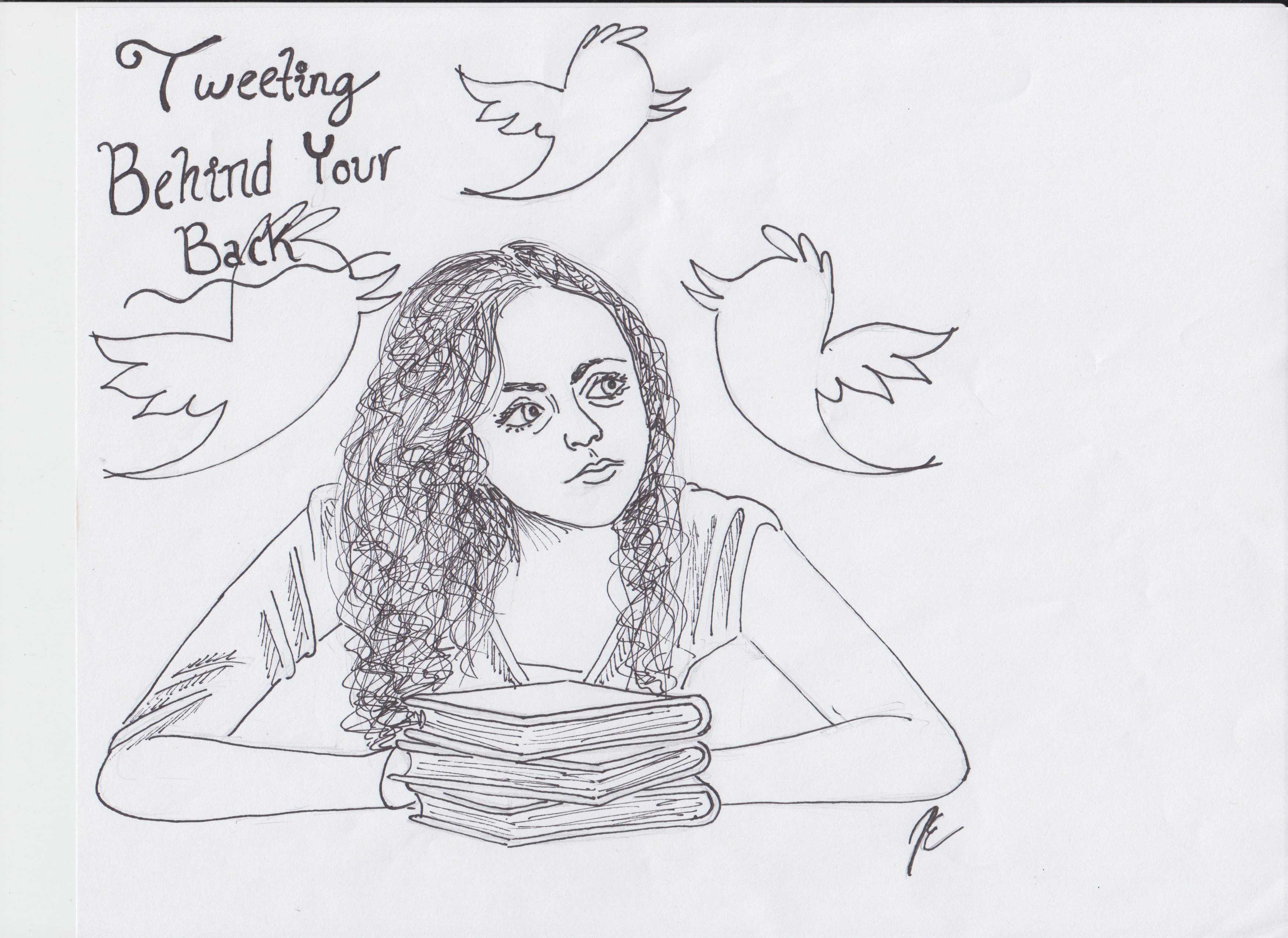By: Amy Andrukonis
Sentry Staff Reporter
Social media’s influence, contrary to popular belief, is not confined to our computers and smart phones. It is tempting to believe that our Twitters are completely blocked off from un-welcome viewers—teachers, parents, older relatives, even strangers—however, this simply is not the case. As a result, students are responsible for being respectful, kind, safe and smart on the internet. While the fear of punishment often keeps students from getting too feisty over Twitter, unfortunately, that selfish fear has not been enough to keep Twitter courteous of late. More disappointing than the recent ineffectiveness of the disciplinary system is simply the fact that it needs to exist: it seems absurd that there must be a system put in place that keeps students from publicly bashing their peers and authority figures.
Parents and teachers constantly remind students that the internet is public. It seems like common knowledge, but it clearly is not, based on the tweeting habits of many students. Some students will argue that their tweets are “protected”. By protecting your tweets, you have narrowed down your Twitter audience to those users who you have permitted to become your followers. Only they can directly see your tweets. In that small sense, your tweets are, in fact, private. However, quote re-tweets, screenshots and word of mouth are not. Turning on this setting definitely maximizes privacy. Still, it must be acknowledged that even maximized privacy is not necessarily ensured. Even if the victim never sees that ugly sub-tweet (or worse, shout out) your followers absolutely do. Your followers may never forget the way you spoke about the victim of your tweet. Warranted or unwarranted, your follower may lose all respect for said victim. Or, plot twist: your follower may lose all respect for you. Because, really—how immature and entitled does one have to be in order to very publically, very blatantly exploit and humiliate another person? These people you are harassing (because they are, in fact, people, not just robots with usernames) have mothers and desk jobs and favorite songs. They might be math whizzes or art junkies, democrats or republicans, Harry Potter geeks or Lord of the Rings nerds, but the fact remains: the individuals you are heckling over Twitter are real people. They have reputations that can be damaged and feelings that can be hurt.
I seem to remember a time when Twitter was less of a compiled list of complaints and more of a place where the probably-younger-than-thirty year olds of the world gathered to toss out punch lines and pictures, and of course, occasionally, commiserate. But it seems to me that the innocent commiseration is not really innocent at all, anymore. Twitter has become merely a channel of negative energy, a safe place to bellyache and backtalk and assert, for the thousandth time, that we “literally can not even.” I feel as if there is a verb missing on the end of this phrase, but, nonetheless, these four words have become socially acceptable to say, and they seem to hold a lot of meaning for a lot of people.
Perhaps what is most appalling about the entire Twitter situation is that when a student tweets negatively about another person, their primary concern is not getting caught. Cyber bullies are not worried about offending the person they tweeted about. The guilty tweeter is concerned about their own comfort, and not at all about the reputation, feelings and maybe even career of the innocent victim.
Of course, the term “cyber bully” is not to be thrown around lightly, and it can be hard to decide who is a true threat and who is just a normal person who had a bad day and took a step out of line. To the latter, any accusations of their being a cyber bully probably seem ludicrous, hasty and hugely inappropriate. They would probably be right. Most likely, your everyday tweeter will never nor should ever be classified as a true cyber bully. The definition of cyber bullying provided by the school website is “an aggressive, intentional act carried out by a group or individual, using electronic forms of contact, repeatedly and over time against a victim who cannot easily defend him or herself.” So clearly, most resentful tweets about excessive homework and friend group drama are not applicable here. However, it seems to me that it is a student’s responsibility to actively and intentionally protect and respect their teachers and peers. Any tweets that seem borderline offensive probably are. Any comments that seem like they could maybe be perceived as rude probably will be. The concrete world we live in is laced through with the drama of a digital one, and we have to start living accordingly. The internet is not your diary or your mother. By the time you are old enough to have your own Twitter account, you are old enough to make simple judgment calls. You should be old enough to realize how central social media is in our world today, which should lead you to understand that the manners and grace that are so valued and important in our real world should carry over into our digital ones. Even kindergarteners know that name calling and tattling are not okay. Use social media to communicate and enhance your social life—not to sever ties and soil reputations.





































